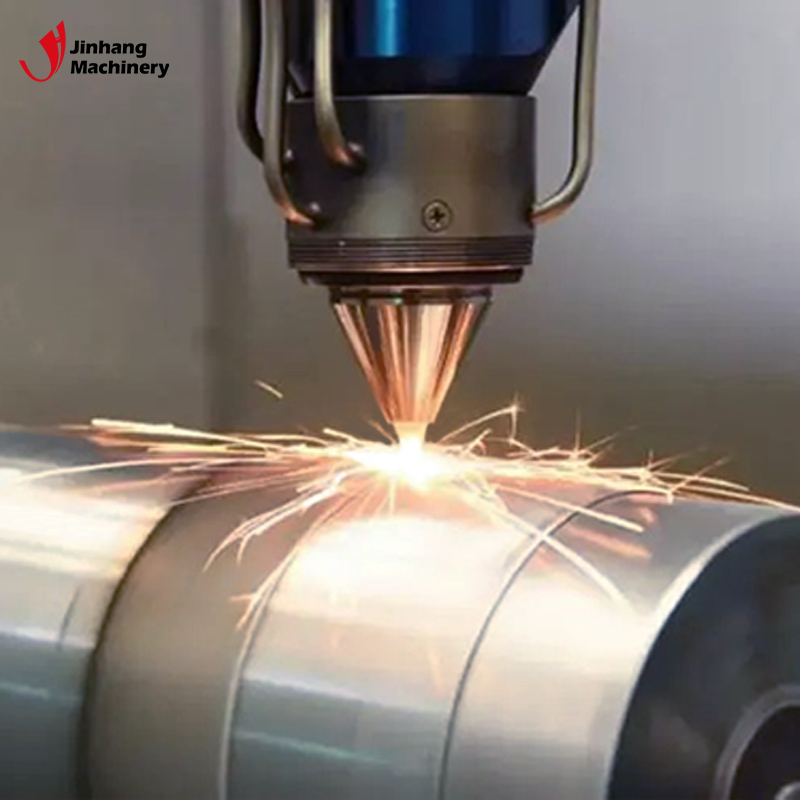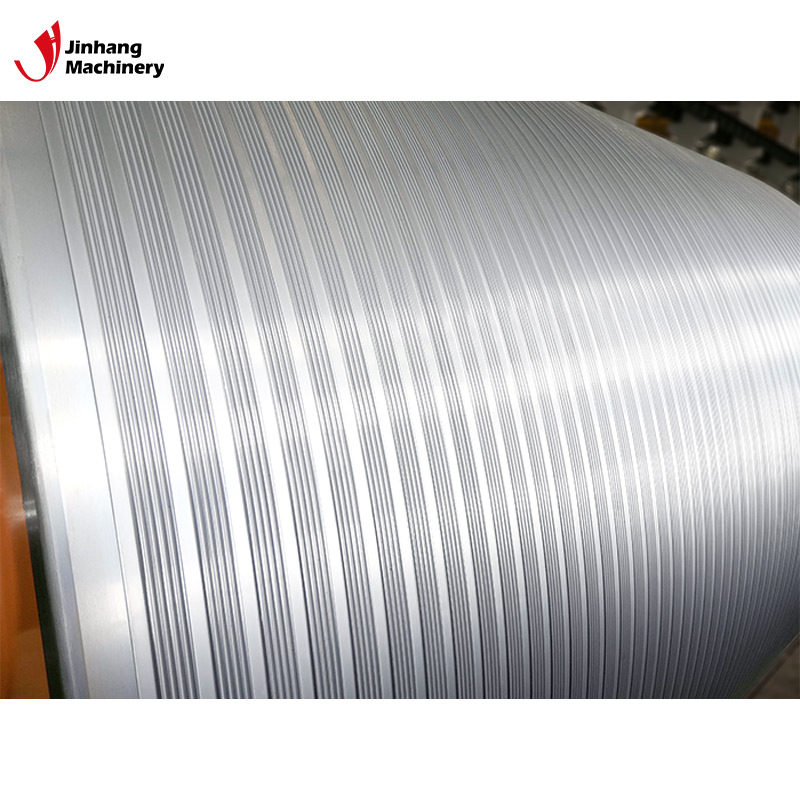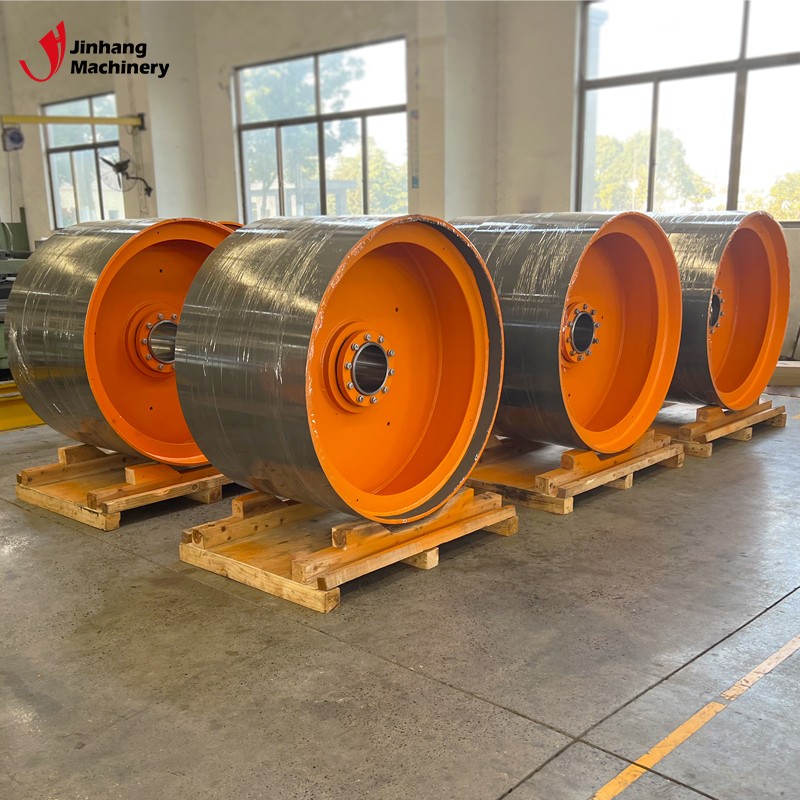Will industrial tungsten carbide coated rollers rust or lose their luster?
In the field of industrial manufacturing, tungsten carbide coated rollers have become key equipment components in many industries due to their excellent wear resistance, corrosion resistance and high strength. From steel processing to paper manufacturing, to printing and textile industries, tungsten carbide coated rollers are widely used to cope with harsh working environments. However, despite the significant advantages of tungsten carbide coatings, many people still have doubts about its performance in long-term use: Will industrial tungsten carbide coated rollers rust? Will the coating lose its luster?
This article will take a deep look at the properties of tungsten carbide coated rollers and analyze its performance in different environments, especially for the two issues of rust and luster loss. By fully understanding the characteristics of tungsten carbide coatings, industrial users can make more informed decisions when selecting and maintaining equipment.

What are the characteristics of tungsten carbide coatings?
Corrosion resistance of tungsten carbide
Tungsten carbide (WC) is a synthetic compound composed of tungsten and carbon with extremely high hardness and wear resistance. Tungsten carbide coating is applied to the surface of industrial rollers by thermal spraying or other high-temperature processes to form a hard protective layer. This coating is mainly used to resist wear, corrosion and high temperature environment challenges.
Compared with traditional metal coatings (such as chrome plating, nickel alloy, etc.), tungsten carbide coated rollers have outstanding corrosion resistance. The compactness of tungsten carbide molecular structure enables it to effectively resist the erosion of chemical substances, including many acidic or alkaline solutions. Because of this, tungsten carbide coatings are often used in industries such as petroleum, chemical, and mineral processing, where equipment needs to operate for a long time in corrosive media.
Causes of rust and performance of tungsten carbide
Rust mainly occurs when metals react with water or oxygen in the air, especially easily oxidized metals such as iron and steel. Tungsten carbide coatings themselves do not contain easily oxidized components, so theoretically they will not rust. However, the substrate of the equipment itself, such as steel, may be exposed after the tungsten carbide coating is damaged or worn, resulting in rust.
Therefore, the integrity of tungsten carbide coated rollers is key. As long as the coating is intact and not scratched, worn or chemically corroded, the substrate will not come into contact with oxygen or water, and rust will not occur. However, in harsh environments, if the tungsten carbide coating is damaged by external forces or chemical corrosion, the substrate may rust when exposed to the air.
Gloss and changes in coating
Tungsten carbide coated rollers usually have a certain metallic luster or matte surface when they are first coated, depending on the coating process and surface treatment method used. The ability to maintain the gloss is closely related to the coating's resistance to oxidation and wear.
In industrial applications, changes in gloss are mainly caused by the following factors:
● Wear: In a high-friction, high-load working environment, the surface of the tungsten carbide coated roller will gradually wear over time, resulting in a decrease in surface gloss. Especially in applications with frequent contact with hard materials, such as ore processing or metal forming, the surface will wear faster.
● Contamination and residues: Industrial equipment is often in contact with various chemicals, grease or dust. These substances may adhere to the surface of the tungsten carbide coating, causing the surface gloss to gradually decrease or even appear smudges. These contaminations usually do not affect the durability of the coating itself, but they will affect the appearance of the equipment.
● Corrosive environment: Although tungsten carbide coated rollers perform well in chemically corrosive environments, long-term exposure to extreme conditions, especially in environments with strong acids, strong bases or high salts, may cause minor chemical reactions on the coating surface, affecting the smoothness and gloss of the surface.

Will industrial tungsten carbide coated rollers rust or lose their gloss?
The relationship between coating damage and rust
One of the main functions of tungsten carbide coated rollers is to provide wear protection for the substrate. The coating itself will not rust, but once the coating is damaged by external forces or chemical reactions, the metal substrate underneath will be exposed to the air, and the risk of rust will increase.
The main factors that cause coating damage include:
● High wear working environment: In high-friction and high-impact working environments, tungsten carbide coated rollers may be physically damaged, especially when the roller surface is frequently in contact with hard materials, scratches or dents may appear.
● Chemical corrosion: Although tungsten carbide is resistant to chemical corrosion, under some extreme conditions, such as continuous exposure to strong acid or alkali environments, the coating may be gradually eroded by tiny chemical reactions, resulting in tiny cracks and eventually exposing the substrate.
Coating thickness and rust risk
The thickness of the coating has a direct impact on its durability. Thicker tungsten carbide coated rollers can provide better wear resistance, thereby delaying the exposure of the substrate after the coating wears. However, too thick a coating may peel or crack under high temperature or high pressure, which increases the risk of substrate exposure. Therefore, the thickness of the tungsten carbide coated roller must be reasonably selected according to the actual application scenario to ensure that it protects the substrate from damage for a long time.

How to maintain tungsten carbide coated rollers to prevent rust and loss of gloss?
Although tungsten carbide coated rollers are extremely durable and corrosion-resistant, reasonable maintenance is still essential. Through scientific maintenance measures, the service life of the coating can be maximized, the substrate can be prevented from rusting and the surface gloss can be maintained.
Regular inspection and maintenance
Regular inspection of tungsten carbide coated rollers is the key to preventing coating damage and substrate rusting. The inspection should include:
● Wear of the coating surface: If obvious scratches, dents or local wear are found on the coating surface, repairs should be made in time.
● Equipment operating environment: Ensure that the equipment is not subjected to excessive friction or chemical erosion during operation.
Cleaning and removal of surface contaminants
In industrial production, oil, dust and chemical residues are often attached to the surface of the equipment, which may accelerate the wear and loss of gloss of the coating. Regular cleaning of the equipment surface and removal of these contaminants can effectively prevent the loss of gloss and maintain the integrity of the coating.
Mild detergents should be used for cleaning, and avoid using chemicals that are too acidic or alkaline to avoid adverse effects on the coating. The cleaning frequency should be adjusted according to the actual use environment of the coating to ensure that the equipment is always in good condition.
Coating repair and re-coating
When the tungsten carbide coated roller is severely worn or scratched, timely repair or re-coating is an effective way to maintain the performance of the equipment. Tungsten carbide coated rollers can be re-coated through thermal spraying to ensure that the protective performance of the equipment is restored to an ideal state.
Application of protective coatings
In extreme environments, in addition to tungsten carbide coated rollers, an additional protective coating, such as anti-corrosion coating or sealing coating, can be applied to the surface of the equipment to further enhance the equipment's corrosion resistance. This multi-layer coating solution can effectively extend the service life of the equipment and reduce maintenance costs.
